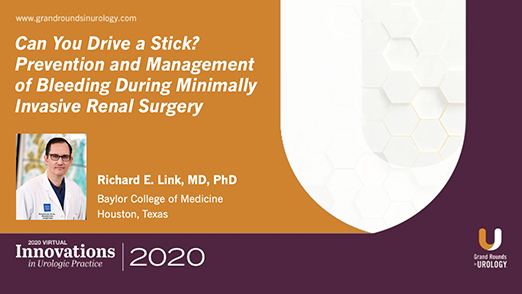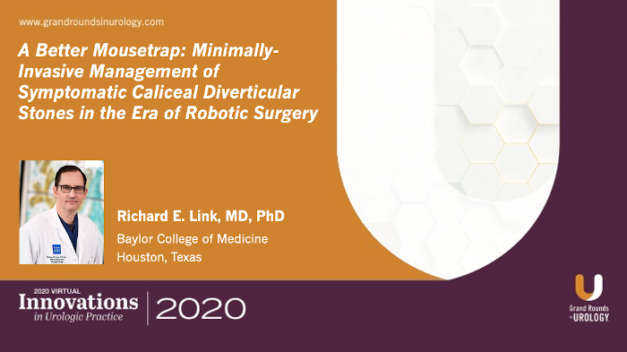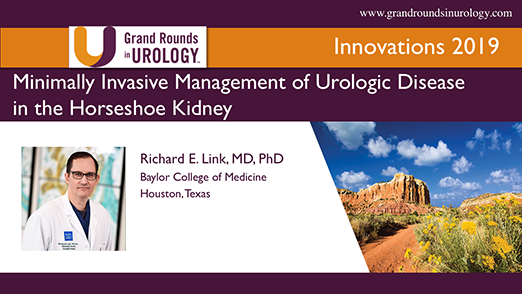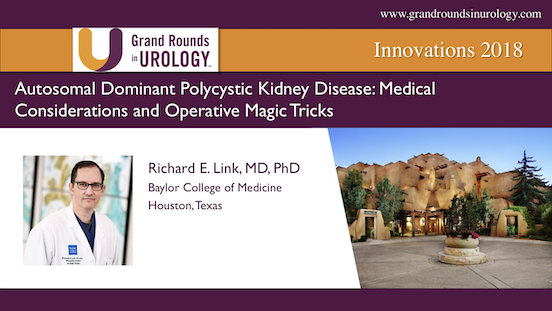Can You Drive a Stick? Prevention and Management of Bleeding During Minimally Invasive Renal Surgery
Richard E. Link, MD, PhD, Professor of Urology and the Carlton-Smith Endowed Chair in Urologic Education at the Baylor College of Medicine, discusses techniques for preventing and managing bleeding during renal surgery, emphasizing the importance of maintaining laparoscopic surgery skills that have eroded with the increased use of robotic surgery. He explains that major bleeding complications can occur during abdominal access, critical dissection steps, or during exit from the abdomen, and surgeons need to be prepared with the correct tools and skills. Dr. Link presents a two-phase system for assessing danger and formulating a plan when major bleeding occurs. Phase 1 is short-term damage control, and involves evaluation of blood loss potential, determination of whether the blood is venous or arterial in origin, and a decision on whether the surgeon can handle the bleed laparoscopically with their skill set. Phase 2 is permanent control, and features a reassessment of response to damage control and a decision on whether the bleed can be solved laparoscopically or if the surgeon should facilitate safe open conversion. Adequate assessment is key to proper management. Dr. Link explains that robotic cases should be approached similarly, but emphasizes the importance of good teamwork and being slow and deliberate when there is a bleed during a robotic surgery.
Read More






